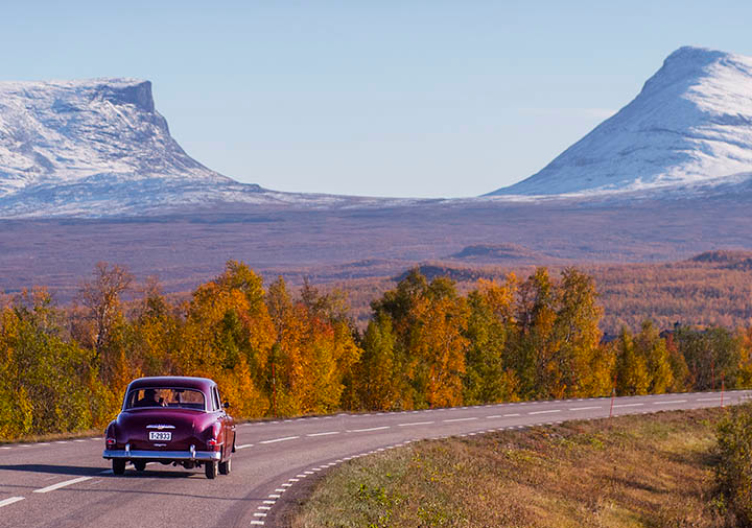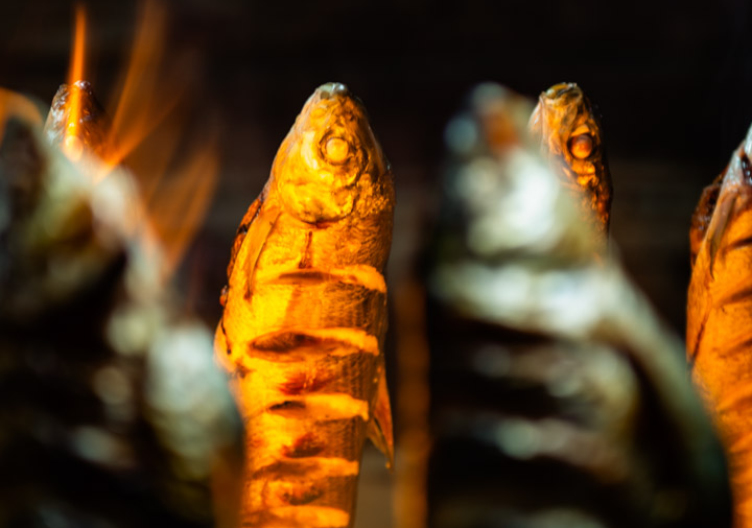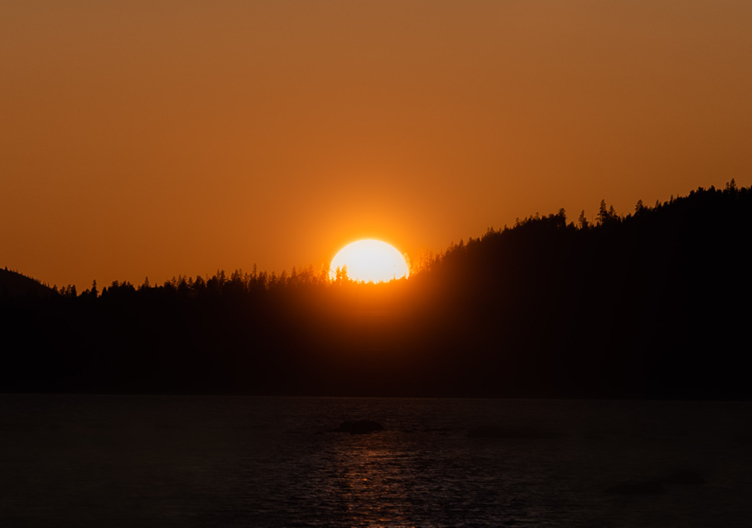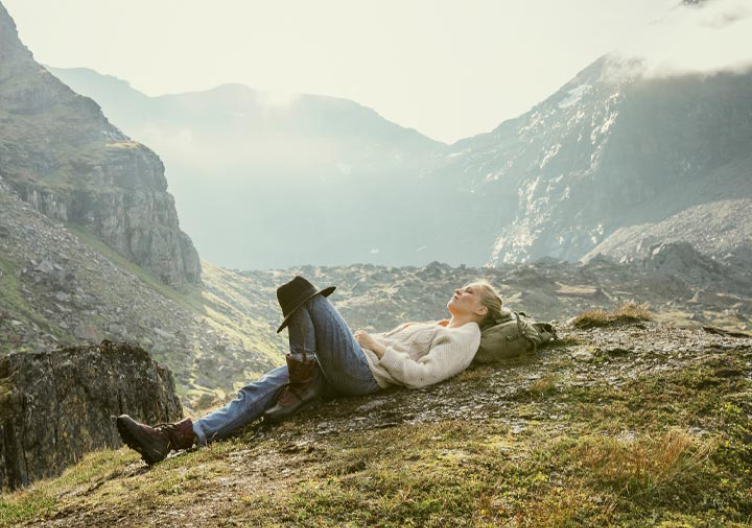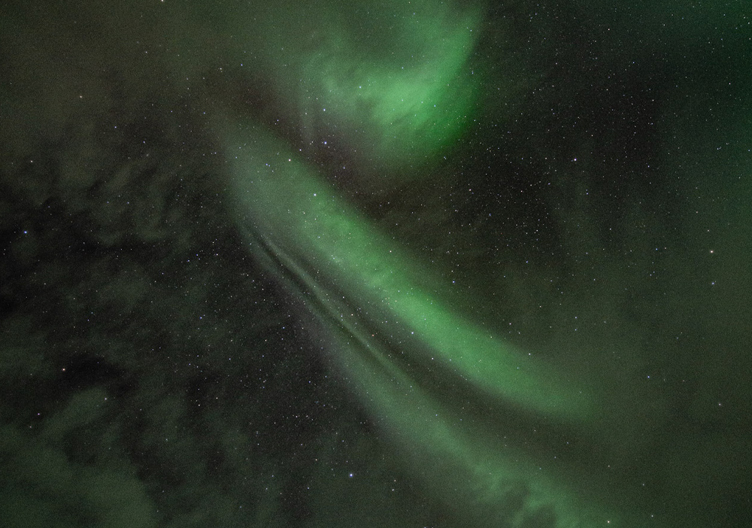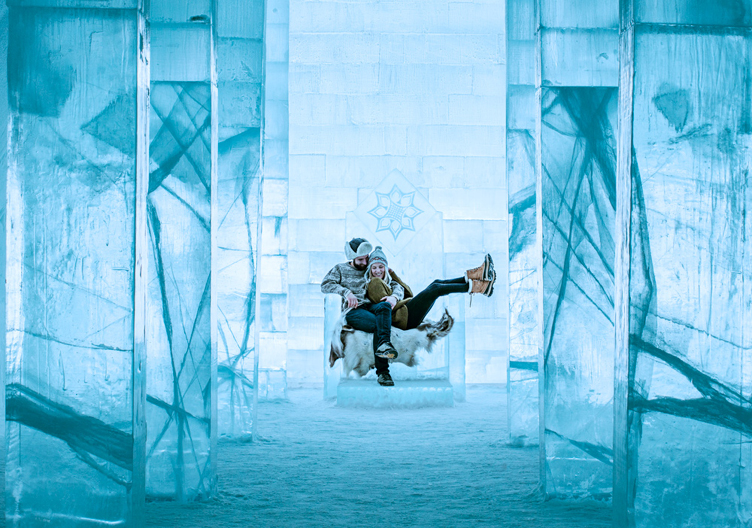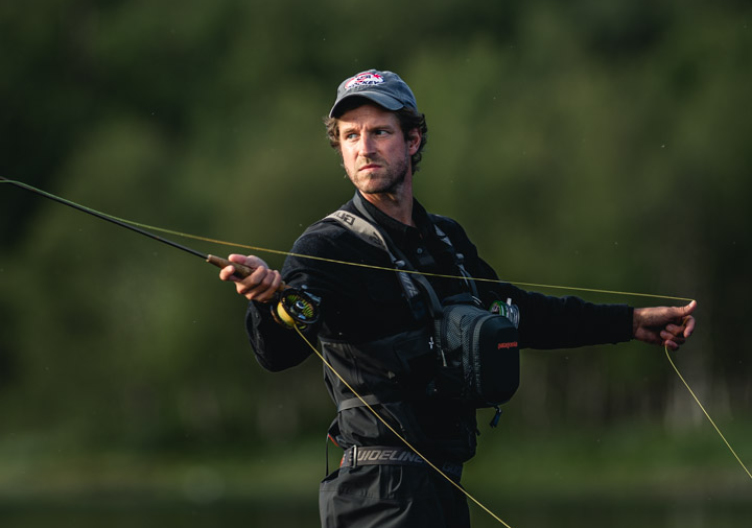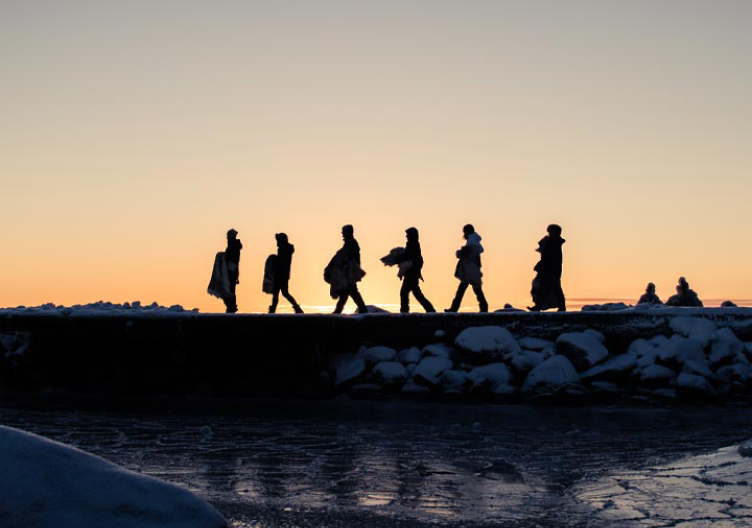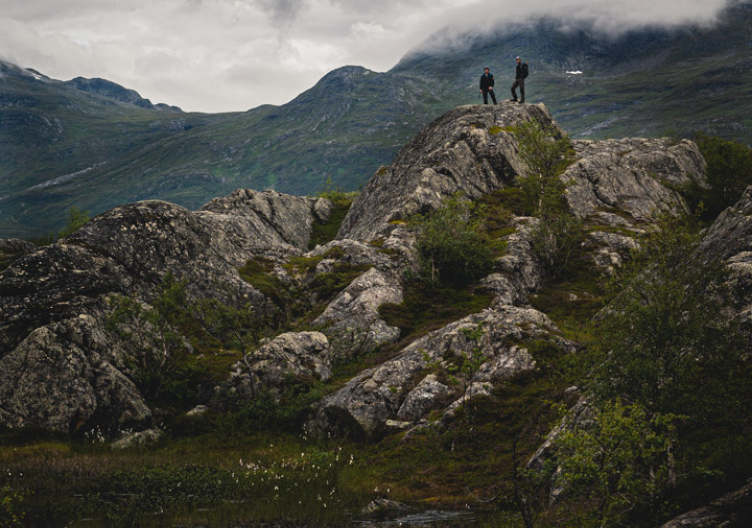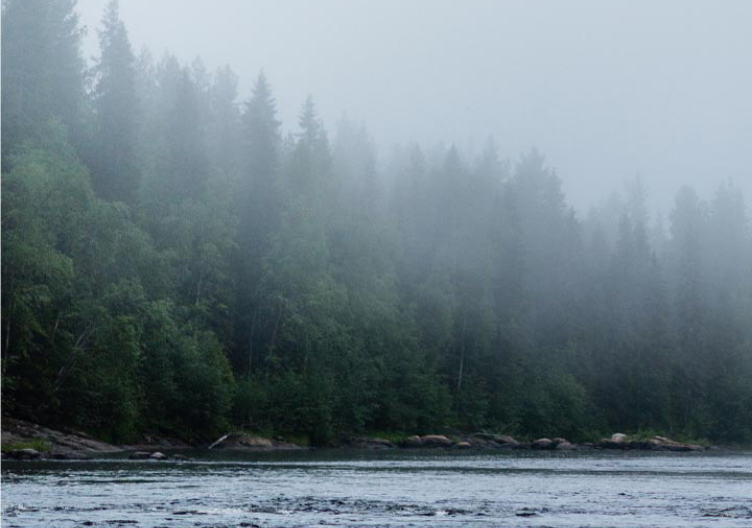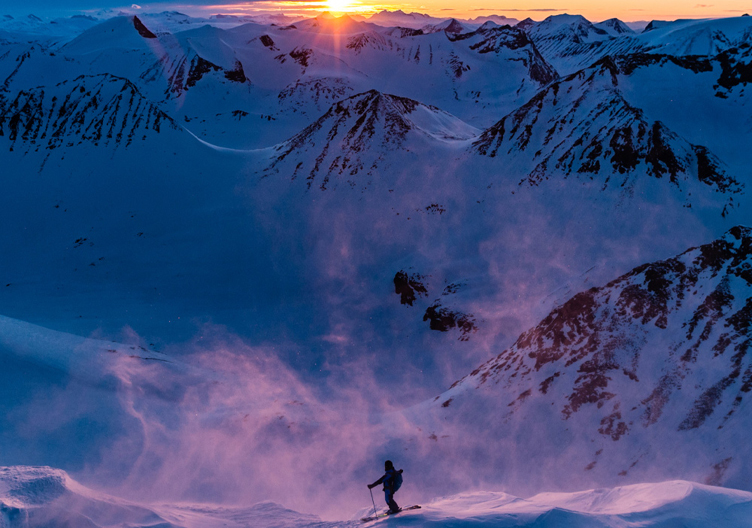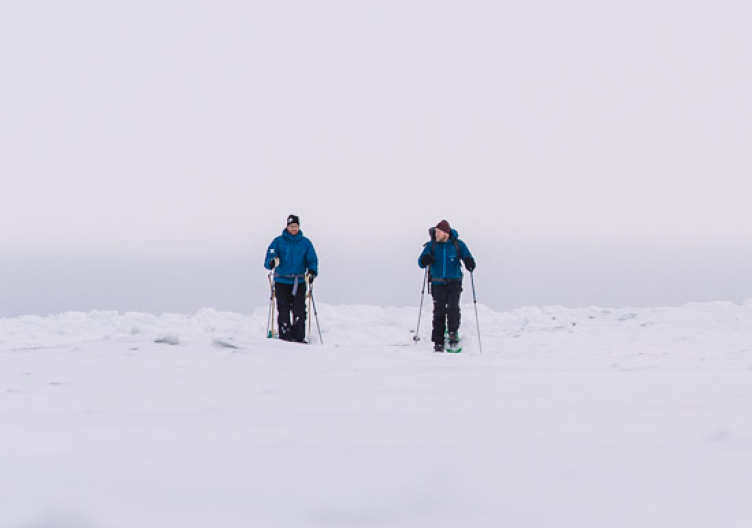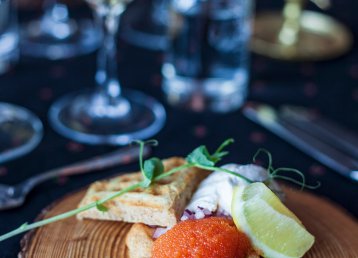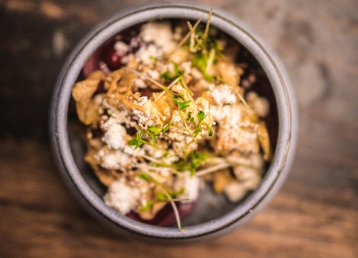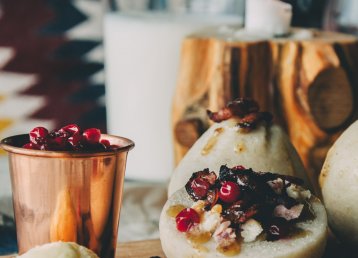It’s April in the Mausjaur Sámi district in Arvidsjaur. It’s warm, and the snow is melting. The summer has more or less come crashing into the life of the forest Sámi this year. Streams open up, and snowmobiles are lost at sea. A big herd of reindeer are fed on a lake where the ice is becoming increasingly grainy. On a hill in the nearby forest, two white-clad chefs are stirring a stew made of thinly sliced reindeer meat. Staffan Naess and Oskar Pettersson from Mathias Dahlgren are in the field tasting products. They have worked with Sámi communities in the area for a couple of years, developing the reindeer product. The work is done partly to ensure the quality of the meat they serve themselves, partly to make reindeer a more well-known and available product on the market. But this week, they are not only here for research purposes, but they are also cooking for visitors.
The ‘Chef of Chef’s’
Most food lovers know the story of Mathias Dahlgren. He was the first Swedish chef to win ‘the World Chef Championship’, Bocuse d’Or, back in 1997. He’s been named ‘Chef of Chefs’ five times. His restaurants, first Bon Lloc and then Matsalen and Matbaren at the Grand Hôtel, have been star-sprinkled by Michelin. Matsalen opened its doors in 2007, and in 2010, it was named one of the world’s 25 best restaurants. For a guy from Storliden outside Umeå in Västerbotten, food has become a way of conquering the world. Both Staffan and Oskar – presently stirring a reindeer stew with shiitake mushrooms in Mausjaur – were part of that trip. Oskar was there for Bon Lloc, and Staffan started to work with them on the project for Matsalen and Matbaren. Now they are both involved in another part of Mathias’s business: catering.
– Of course, we’ve been asked about catering. We’ve actually been asked that pretty much all the time. But while we were working with Matsalen, it was basically impossible.
– These days we have more opportunities to take on this kind of activities. Instead of importing the food from the north and the Arctic region, we bring our guests to Arvidsjaur, says Staffan.
All in one
The idea, broadly speaking, is that Mathias Dahlgren Catering brings food-interested guests to Arvidsjaur. There they go into the forest to meet reindeer as well as reindeer herders, and then they have lunch outside. After that, they continue to Silver Lodge in Arjeplog, for spa and dinner. The next day is filled with activities – depending on the season, of course – like snowmobiling, dog sledding, fly fishing and hiking, to name but a few, before returning to Silver Lodge and another delicious dinner.
– The idea is to spend a couple of night in this environment and combine it with activities – meetings with food and nature – making it a perfect trip, says Johan Andersson who worked as a sommelier at Matbaren for many years.
– We wanted the environment up here, and at that same time, we wanted to secure the philosophy behind the product, and when we started our collaboration with Silver Lodge, we knew it would work.
9,000 islands
Hotel Silver Lodge on the mountain Galtispouda in Arjeplog has a magical view of the mountain world and Hornavan, Sweden’s deepest lake. Standing on the terrace looking out across lakes Hornavan, Uddjaur and Kakel, it’s easy to understand why Arjeplog is said to have a ‘mountain archipelago’. There are islands and water everywhere. Out of Sweden’s 221,000 islands, Arjeplog municipality has more than 9,000. It’s lovely in summer as well as winter, and the lodge is in a perfect, secluded location near the bare mountain.
– It’s good for us as well, of course, that Mathias Dahlgren wants to come here and cook, says Therese Larsson, Marketing Manager for Silver Resort, which Silver Lodge is part of. She continues:
– At Silver Resort, we only work with groups, and the only time of year we can’t receive guests is from January to March, when the entire lodge is booked and run by Mercedes’s own event company. The rest of the year, this is a perfect place to visit for food lovers as well as adventurous groups.
Local delicacies
Tonight’s dinner begins with dried reindeer meat and a piece of cheese with a glass of champagne. It’s nice and warm on the terrace, and it feels like a little taste of the summer to come. Here on the Arctic Circle, the midnight sun is just weeks away. A bowl of crisps and a pot of vendace roe from Kalix are presented to accompany a Bellini. Someone opts for the local beer instead. Over the last decade, a number of microbreweries have popped up in Swedish Lapland. Bottenvikens Bryggeri, This is How, and Skellefteå Bryggeri to mention a few.
– Even if we’re working with a project to help Sámi communities to raise the status of reindeer meat and think that we’re doing very well, we’re aware of the other local delicacies.
– Vendace roe from Kalix, of course, but also cheese. The mature cheese Västerbottenost is famous and pretty much a staple product, but there are other tasty cheeses from Svedjan and the exciting mountain-cow cheese from Vuollerim, outside of Jokkmokk, Johan tells us.
Classics
Then we sit down at the table. The tartar of reindeer neck with a top made of Kalix vendace roe, reindeer marrow and brown butter definitely sets the bar for the evening. The tartar is followed by a delicious, lightly smoked Arctic char with sooty leeks, cream and horseradish before the mains are finished off with a kebab made of lightly fried reindeer silverside, yellow-pea hummus and a mint and herb sorbet with angelica. For dessert, we savour macerated cloudberries with vanilla ice-cream, caramel sauce and meringue. Classic northern flavours. Classic perfection from the chefs.
The next day Johan Jonsson brings food to feed his reindeer in the Mausjaur forest. It’s hard to find anything more removed from the dinner at Silver Lodge yesterday than Johan’s everyday life in the reindeer forest.
– Yes, it’s definitely been exciting for us to see what these chefs can do with our products and our reindeer.
– From a practical point of view, the tartar and kebab they serve aren’t that far removed from the thinly sliced reindeer meat I have myself for dinner. And yet, it’s so different.
Also read
Sápmi slow foodThe love for the reindeer
When Johan started working with the reindeer, he did so with six others from the same Sámi community. Then it dropped down to three active people, but when Johan’s brother decided to have a go at reindeer herding, they were four.
It’s a tough industry, and it’s been some tough years for the Sámi and the reindeer business. I ask Johan why he keeps doing it. His answer is as quick as lightning.
– Because of the reindeer.
– It’s the love for the reindeer that keeps you going. It’s as simple as that.
– Yes, but why do you like them that much? What do they actually mean to you?
– I’ve been wanting to ask this for such a long time. Someone once said a reindeer is like a beautiful piece of jewellery. I guess that could be it. It’s the most precious thing you have, besides your children. In that sense, it was natural for me to my part of this project with Mathias Dahlgren.
– Because I want them to do their best with what’s most precious to me.
Learn more
Visit mdghs.se, to learn more about the cooperation between Matbaren and Mausjaur Sámi community.
Go to silverresort.se if you want to learn more about Silver Resort in Arjeplog.


